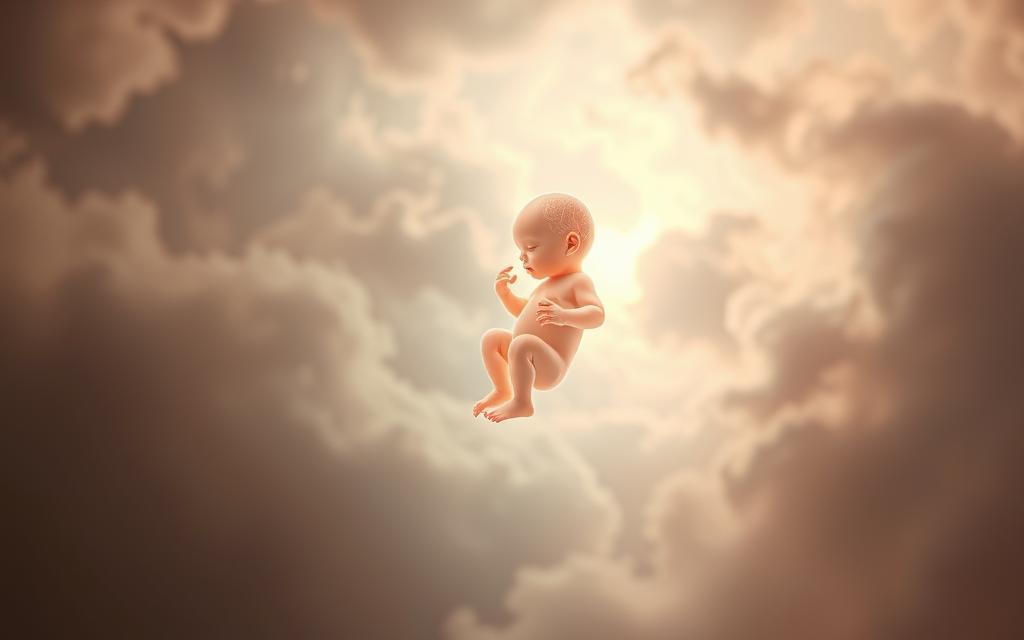As you enter the second trimester of your pregnancy, you may notice a significant shift in your body and overall health. Often referred to as the “golden period,” this time is characterized by increased energy and a decrease in morning sickness for many women.
However, beyond the excitement of your growing baby bump, your body is undergoing numerous transformations that can affect everything from your skin to your nasal passages. Understanding these changes and what to expect during this critical time can help you navigate your pregnancy with confidence.
This comprehensive guide will cover the physical changes, unexpected symptoms, baby development milestones, essential medical tests, and preparation strategies that are often overlooked.
Key Takeaways
- Understanding the physical and emotional changes during the second trimester.
- Recognizing unexpected symptoms and how to manage them.
- Baby development milestones to look out for.
- Essential medical tests and check-ups during this period.
- Preparation strategies for the third trimester and beyond.
The Surprising Physical Changes Beyond the Baby Bump
Beyond the obvious expansion of your belly, the second trimester introduces a range of unexpected physical transformations. As your body changes, you may experience some discomfort, particularly in your back and legs, as your belly stretches to accommodate your growing baby.
The “Pregnancy Glow” and Skin Changes
One of the most talked-about changes is the “pregnancy glow.” Increased blood flow can make your skin look radiant and healthy. However, it can also lead to other skin changes, such as darkening of the skin around your nipples or the appearance of a dark line running from your navel to your pubic bone.
Unexpected Nasal Congestion and Nosebleeds
Hormonal changes can cause your nasal passages to swell, leading to congestion and nosebleeds. This might be surprising, but it’s a common complaint during the second trimester of pregnancy. Using saline nasal sprays can help alleviate some of this discomfort.
Round Ligament Pain and Body Aches
As your baby grows, it starts to stretch everything out, and the round ligaments can start to pull, causing a sharp pain down the side of the abdomen or even into the groin area. This pain can be concerning if you’re not expecting it, but it’s completely normal. Your body is undergoing significant changes, and this includes experiencing some discomfort in your back and other areas due to the relaxation of joints and ligaments.
Some common issues include round ligament pain, general achiness due to the hormone relaxin, and sciatica-like symptoms from the growing uterus putting pressure on the sciatic nerve. These changes can require adjustments to your daily activities and sleeping position.
Things No One Tells You About the Second Trimester Symptoms
You’re likely to experience a mix of relief and new surprises as you navigate the second trimester of your pregnancy. While some women sail through this period with ease, others may encounter a range of symptoms that can be both surprising and challenging.
When Morning Sickness Doesn’t Disappear
For some women, the nausea and vomiting associated with morning sickness can persist into the second trimester. This can be due to hormonal changes or other factors, and it’s essential to discuss these symptoms with your healthcare provider to rule out any underlying conditions. Staying hydrated and eating small, frequent meals can help manage these symptoms.
The Return of Energy… Or Not
Many women experience a welcome boost in energy during the second trimester, as the initial fatigue of the first trimester begins to lift. However, this isn’t universal, and some women may continue to feel tired due to the ongoing demands of pregnancy on their body. Listening to your body and pacing your activities can help manage energy levels.
New Digestive Issues That May Arise
As your baby grows, it can put pressure on your digestive tract, leading to new symptoms like heartburn, constipation, and hemorrhoids. The slowing of digestion caused by pregnancy hormones, combined with increased water absorption in the large intestine, can lead to uncomfortable constipation. Drinking plenty of water, increasing fiber intake, and regular physical activity can help manage these digestive challenges.
It’s also worth noting that you’re at an increased risk of infections like UTIs and yeast infections during pregnancy. Being aware of the signs of infection, such as itching, changes in vaginal discharge, and a burning feeling when you pee, can help you seek medical attention if needed.
Your Baby’s Secret Development Milestones
The second trimester is a period of remarkable growth for your baby, with various senses and vital organs developing at a rapid pace. During this time, your baby is becoming more active and their development is accelerating in preparation for life outside the womb.
Vital organs such as the brain, lungs, and kidneys continue to mature, and the skeleton is hardening from cartilage into bone. This period is crucial for the overall development and health of your baby.

When Your Baby Can Actually Hear You
By the end of the second trimester, your baby’s auditory system is developed enough to detect sounds outside the womb, including your voice. Research suggests that babies can distinguish between different voices and even respond to familiar sounds after birth.
The formation of your baby’s ears and the development of their hearing is a complex process that starts early in pregnancy. By week 16, your baby can detect sounds, and by week 24, they can even respond to loud noises.
Understanding Those First Flutters and Movements
As your baby grows, you will start to feel their movements more distinctly. Initially, these might feel like gentle flutters, but as the weeks go by, you will become more aware of their kicks, rolls, and even hiccups. These movements are a sign of your baby’s increasing strength and activity.
The sense of touch also develops progressively throughout the second trimester. Your baby becomes increasingly sensitive to stimulation through the abdominal wall, responding to touch and pressure.
The Development of Your Baby’s Senses
Your baby’s senses are rapidly developing during this period. Taste buds form around weeks 13-15, allowing your baby to taste flavors from your diet that pass into the amniotic fluid. By week 16, your baby can make facial expressions, and their eyes become sensitive to light, although they are still fused shut.
The brain undergoes significant development, with neurons forming at an incredible rate. This lays the foundation for future learning and cognitive functions. As your baby’s senses continue to mature, they are better prepared for life outside the womb.
Critical Medical Tests You Shouldn’t Skip
Understanding the critical medical tests during the second trimester can help you better prepare for a healthy pregnancy outcome. During this period, your healthcare provider will recommend several tests to monitor your baby’s development and your health.
The Anatomy Ultrasound
The anatomy ultrasound is a detailed scan that checks your baby’s development and checks for any potential abnormalities. It examines the baby’s organs, measurements, and overall growth.
Glucose Screening
Glucose screening is a test used to detect gestational diabetes. It’s crucial because untreated gestational diabetes can pose risks to both you and your baby, including complications during delivery and the need for neonatal care.
Warning Signs
You should contact your healthcare provider immediately if you experience any warning signs such as vaginal bleeding, severe abdominal pain, or signs of preterm labor. These symptoms could indicate serious complications that require prompt medical attention.
Staying vigilant and informed about your health and your baby’s development is key during the second trimester of your pregnancy.
Preparing for the Third Trimester While You Still Have Energy
With your energy levels still relatively high, now is the perfect time to prepare for the third trimester. As your pregnancy progresses, you’ll want to make the most of your current energy levels to get ready for the challenges ahead.
One of the key areas to focus on is preparing your home and family for the arrival of your baby. This includes making a list of essential items to purchase before your baby arrives.
Essential Items to Purchase Now
Start by making a list of the essentials you’ll need for your baby, such as diapers, onesies, and a crib. It’s also a good idea to prepare your home by setting up a nursery and making any necessary safety adjustments.
Classes and Education to Consider
In addition to preparing your home, consider taking birth-related classes or educational courses to help you prepare for birth and parenthood. These classes can provide valuable information and support as you navigate the final stages of your pregnancy.
Physical Preparations for Your Changing Body
It’s also crucial to prepare your body for the physical demands of the third trimester and birth. Establishing a pregnancy-safe exercise routine can help you maintain a healthy body and support your growing baby. Core-strengthening exercises can significantly reduce back pain, while pelvic floor exercises can help prepare for an easier recovery after birth.
Conclusion: Embracing the Middle Stage of Your Pregnancy Journey
Embracing the middle stage of your pregnancy journey can be a transformative experience. The second trimester represents a unique part of your pregnancy journey—one where you’re past the initial uncertainty but not yet facing the physical challenges of the final stretch.
Understanding the lesser-discussed aspects of this time helps you navigate it with realistic expectations. Every woman’s second trimester pregnancy experience is different, and comparing your journey to others can create unnecessary anxiety.
Taking proactive steps during this trimester to prepare both physically and emotionally can significantly impact your experience through the end of pregnancy and into early parenthood. Building a strong support system and maintaining open communication with your healthcare providers throughout pregnancy is essential.
Remember, care for yourself during this critical time isn’t selfish—it’s an essential part of preparing to care for your baby at the end of your pregnancy journey.

Calvin Bassey is a dedicated writer and parenting enthusiast passionate about guiding expectant parents through the journey of pregnancy. With a deep understanding of maternal health and baby care, he provides practical and insightful advice to help families prepare for childbirth and early parenthood. His work at Brimvue focuses on empowering parents with knowledge, ensuring they navigate this transformative experience with confidence and ease.

